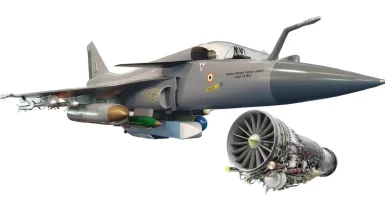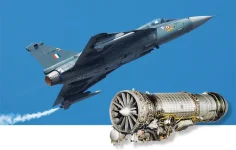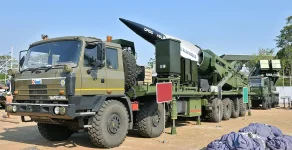- Views: 3K
- Replies: 6
The Chairman of Hindustan Aeronautics Limited (HAL) has officially confirmed that software integration issues were the main reason for the unsuccessful test-firing of the Astra Mk1 missile from the Tejas Mk1A fighter jet in March 2025.
This acknowledgement clarifies the challenges facing India’s indigenous combat aircraft program as HAL prepares for a crucial retest this month, which is vital for clearing the advanced jet for delivery to the Indian Air Force (IAF).
The March trial, which involved firing the indigenous Beyond-Visual-Range Air-to-Air Missile (BVRAAM) from a Tejas Mk1A prototype over the Integrated Test Range in Odisha, was previously clouded by conflicting information.
However, HAL's Chairman and Managing Director, Dr. D.K. Sunil, recently stated that the test did not achieve its objectives. He assured that the problem was not a fundamental flaw in the aircraft or missile design but rather a complex software challenge.
“Software issues were one of the reasons why the Astra Mk1 BVRAAM test from the Tejas Mk1A failed,” Dr. Sunil explained, confirming that engineers are resolving the glitch ahead of a new test scheduled for September.
The technical difficulties are believed to be related to the communication between the aircraft’s fire-control radar and the missile.
The Tejas Mk1A is equipped with the advanced Israeli ELTA EL/M-2052 Active Electronically Scanned Array (AESA) radar, a significant upgrade that allows the jet to track multiple targets at longer ranges with high precision.
However, ensuring this sophisticated foreign radar works seamlessly with the Indian-developed Astra missile requires highly specific software programming.
Experts indicate that such integration is one of the most complex aspects of developing a modern fighter jet, particularly for guiding a missile towards a target over 100 kilometres away.
The success of the upcoming test is critical for the Tejas Mk1A program's timeline. The failure in March led to delays, pushing the planned trial from August to September.
Once the integration is proven successful, HAL can proceed with handing over the aircraft to the IAF, which has 83 of these jets on order in a deal valued at approximately ₹48,000 crore.
HAL aims to deliver the first 12 jets by March 2026, with the first batch potentially joining the No. 18 Squadron, known as the "Flying Bullets." Following this, production is planned to increase to 30 aircraft per year with support from private sector partners.



